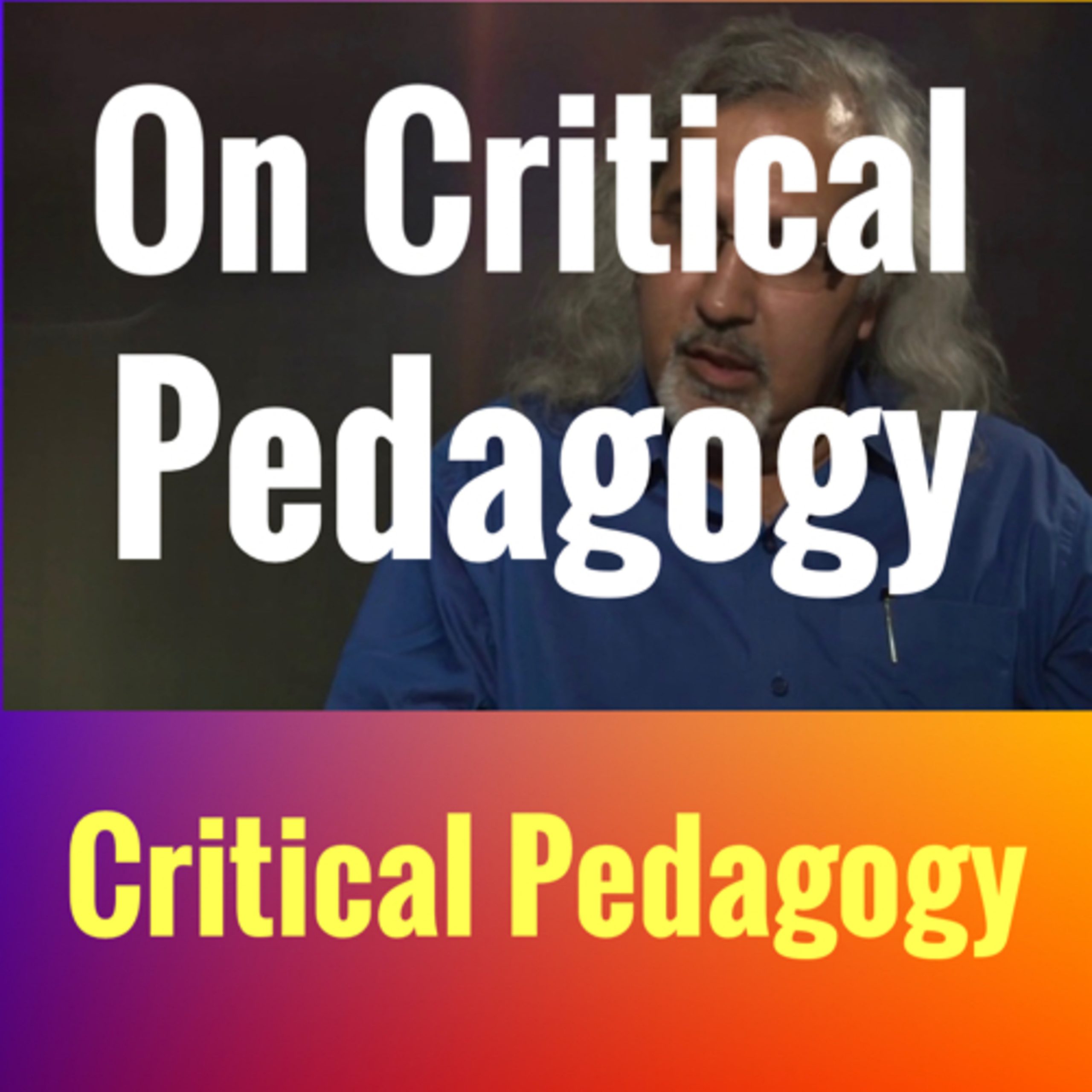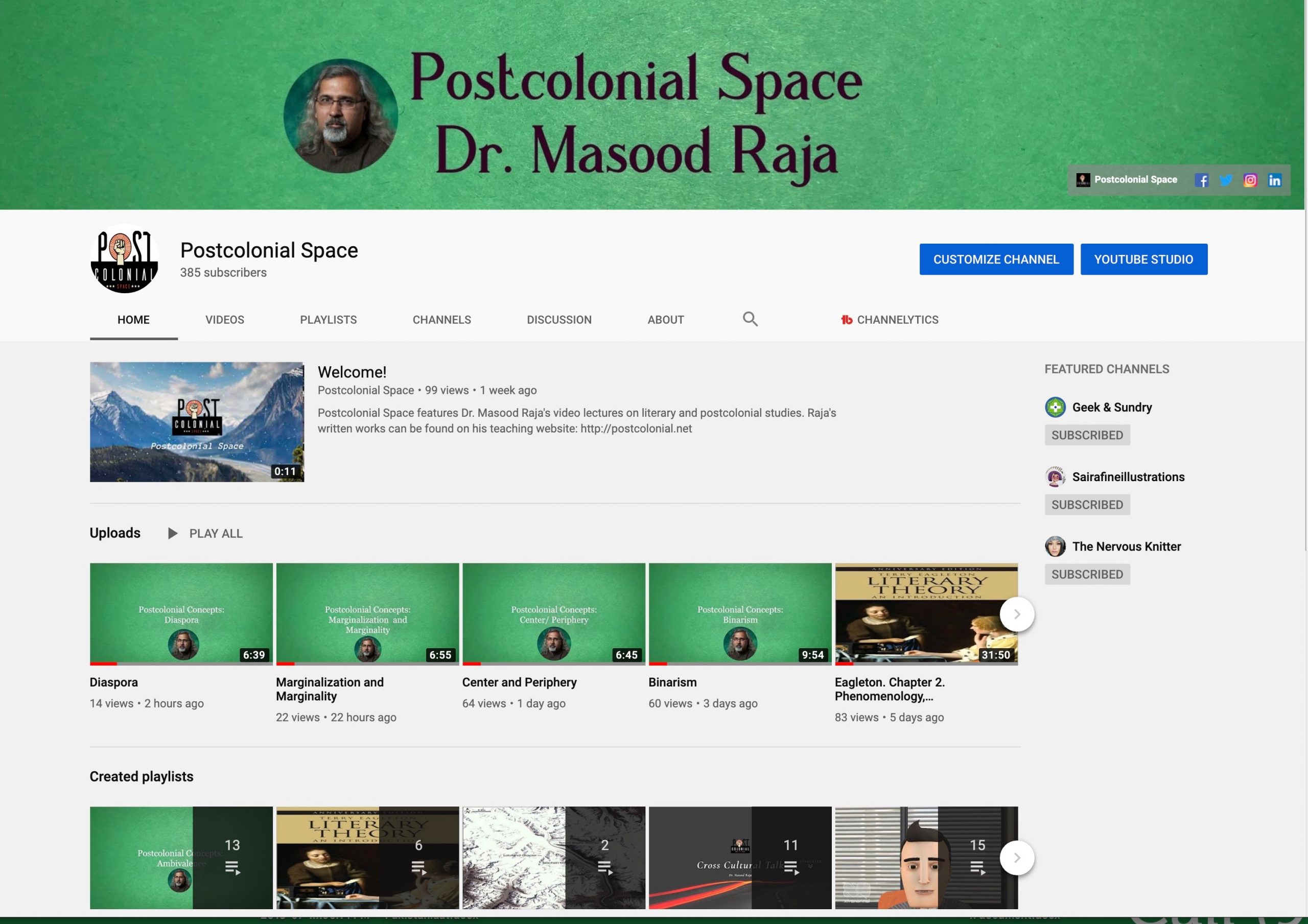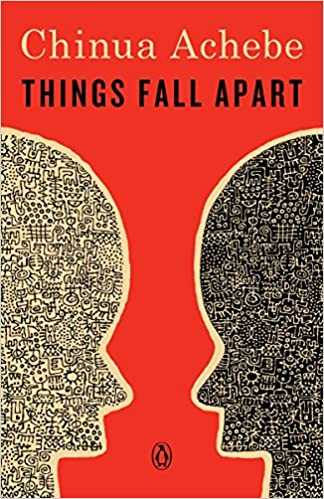Note: This website provides supplemental resources for your learning. All course activities will be conducted through canvas.
Announcements
All Course announcements will be posted on Canvas
Weekly Livestream Links:
We will use Canvas for our weekly meetings.
Texts and Discussion for the Current Week
Livestream Archive (Recorded lecture links)
Resources and Readings for Next Week
Online Recorded Resources
————————————————————————-
Introduction:
This is an intensive course aimed at introducing you to the major works of postcolonial female authors. We will spend the early few weeks of the course learning the basic concepts of postcolonial studies itself and then move on to discuss the primary texts written by female authors from various parts of the postcolonial world.
Our main concern would be to charter the particularities of postcolonial feminism and the role of neoliberal globalization in the current state of gendered space in the postcolonies. We will also spend some time in discussing and applying the peculiar aspects of postcolonial feminisms to our chosen texts.
Required Texts:
Mohanty, Chandra. Feminism Without Borders.
Cliff, Michelle. Abeng. New York: Penguin, 1984.
Hyder, Qurratulain. River of Fire. New York: New Directions, 1998.
Nwapa, Flora. Efuru. London: Heinemann, 1966.
Emecheta, Buchi. The Joys of Motherhood. London: Heinemann, 1994.
Rhys, Jean. Wide Sargasso Sea.
Roy, Arundhati. The God of Small Things.
Course Policies and Requirements
Students are expected to come prepared for class: This involves reading the assigned texts, listening carefully to their peers, and contributing their views in a collegiate and stimulating way. Attendance is mandatory.
YOU MUST FINISH ALL MAJOR ASSIGNMENTS TO PASS THE COURSE.
Distribution of Points:
Weekly Journal 100 Points
Mid-Term Exam 400 Points
Term Paper 400 Points
Participation 100 Points
Total 1000 Points
Mid-Term Exam (400 Points):
The Mid-term will be a take-home exam given in the eighth week. The exam will include three essay questions. I will give you a comprehensive study guide a week before the exam.
Final Paper
At the end of the semester you will be required to submit a term paper of 15-20 page length. I will provide detailed instructions about the paper later.
Class Participation (100 Points)
As this is a discussion format class, your thoughtful participation is essential to the success of the class. I encourage collegiate, open, and thought-provoking class discussions. Remember, we are all here to learn, so let us share our ideas and knowledge to make this class into a dynamic learning experience. I encourage you to speak-up in the class, not just about the texts but also if you have any suggestions about how to improve our learning during the course.
Attendance
You are expected to attend the online class regularly. You will be in the danger of failing the course if you exceed FOUR absences.
Cheating and Plagiarism
Cheating and plagiarism constitute fraudulent misrepresentation for which no credit can be given and for which appropriate sanctions are warranted and will be applied.
“Cheat” means intentionally to misrepresent the source, nature, or other conditions of academic work so as to accrue undeserved credit, or to cooperate with someone else in such misrepresentation. Such misrepresentations may, but need not necessarily, involve the work of others. As defined, cheating includes, but is not limited to:
Obtaining or retaining partial or whole copies of examination, tests or quizzes before these are distributed for student use;
Using notes, textbooks or other information in examinations, tests and quizzes, except as expressly permitted;
Obtaining confidential information about examinations, tests or quizzes other than that released by the instructor;
Securing, giving or exchanging information during examinations;
Presenting data or other material gathered by another person or group as one’s own;
Falsifying experimental data or information;
Having another person take one’s place for any academic performance without the specific knowledge and permission of the instructor;
Cooperating with another to do one or more of the above; and
Using a substantial portion of a piece of work previously submitted for another course or program to meet the requirements of the present course or program without notifying the instructor to whom the work is presented.
Presenting falsified information in order to postpone or avoid examinations, tests, quizzes, or other academic work.
“Plagiarize” means to take and present as one’s own a material portion of the ideas or words of another or to present as one’s own an idea or work derived from an existing source without full and proper credit to the source of the ideas, words, or works. As defined, plagiarize includes, but is not limited to:
(a) The copying of words, sentences and paragraphs directly from the work of another without proper credit;
(b) The copying of illustrations, figures, photographs, drawings, models, or other visual and nonverbal materials, including recordings, of another without proper credit; and
(c) The presentation of work prepared by another in final or draft form as one’s own without citing the source, such as the use of purchased research papers.
ADA
Please bring me the necessary documentation and I will work with you to help you if you have a learning disability.
Grading Scale:
A 920-1000
B 830-919
C 739-829
D 600-738
F Less than 600 Points
Important Note: If at any stage in this course you feel like I could tweak my teaching practices to make it a better learning experience for you, please come and talk to me. If you are not comfortable talking in person, you can leave me a typed anonymous note with your suggestions in my mailbox in the English main office.
Weekly Schedule:
(Note: This is a tentative schedule and the instructor retains the right to change it as and when necessary. This document will be continually augmented by in-class announcements or through emails and you are required to be aware of all such announcements)
Week 1
Introduction to the course
Mohanty: Intro and Chapter 1
Reading:
Mohanty: Chapter 2
Week 2
Discussion: Mohanty: Chapter 2
Reading:
Mohanty: Remaining Chapters
Week 3
Discussion:
Mohanty: All chapters
Reading:
Nwapa: Efuru
Group Presentation
Efuru Group:
Week 4
Discussion: Nwapa: Efuru
Reading:
Efuru
Week 5
Discussion: Nwapa: Efuru
Reading:
Hyder: River of Fire
Group Presentation
Hyder Group:
Week 6
Discussion: Hyder: Rivr of Fire
Reading:
Hyder: Rivr of Fire
Week 7
Discussion: Hyder: Rivr of Fire
Reading:
Cliff: Abeng
Week 8
Discussion: Cliff: Abeng
Mid Term
Reading:
Cliff: Abeng
Group Presentations
Abeng Group:
Week 9
Discussion: Cliff: Abeng
Reading:
Goodman: World, Class
Week 10
Discussion: Goodman
Reading:
Cooke: Emechita, Joys of
Group Presentation
Emechita Group:
Week 11
Discussion: Emechita, Joys of
Reading:
Emechita
Week 12
Discussion: Emechita
Reading:
Hayati
Week 13
Discussion: Hayati
Assignment:
Final Paper Workshops
Week 14 & 15



